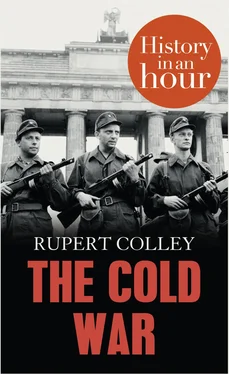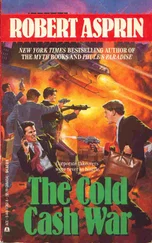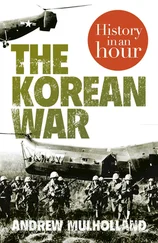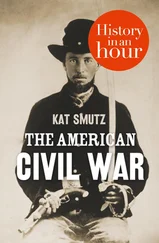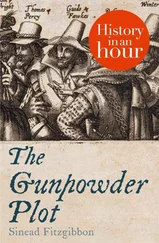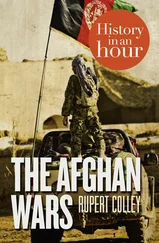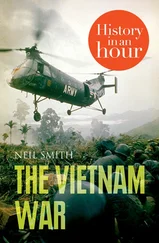Winston Churchill, Britain’s wartime prime minister, said of Stalin, he would ‘work with the Devil if it would help defeat Hitler’. Towards the end of the Second World War, with the defeat of Hitler’s Germany only a matter of time, the ‘Big Three’ – Churchill, Joseph Stalin and the US president, Franklin D. Roosevelt (pictured below) – met a number of times to discuss their strategy for winning the war and the make-up of a post-war Europe. US soldiers, advancing on Berlin from the west, and Soviet soldiers from the east, met on the River Elbe on 25 April 1945. Amidst the handshakes and toasts they promised everlasting friendship between the two nations. But while the soldiers visualized a bright future of camaraderie and peace, the Big Three had already begun carving Europe up between the East and the West.
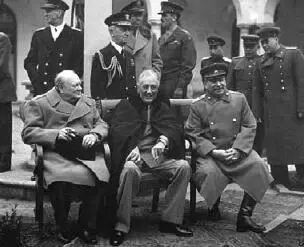
Churchill, Roosevelt and Stalin, February 1945
With the Red Army taking Berlin and indulging in an orgy of mass rape against German women, Hitler, deep within his bunker, committed suicide on 30 April. A week later, on 7 May, Germany surrendered unconditionally. The war – in Europe, at least – was over.
In the Far East, Japan, although on the brink of starvation and collapse, its armed forces shattered, refused to do likewise. The Americans, having successfully tested the first atomic bomb on 16 July, used this new apocalyptic weapon on the Japanese city of Hiroshima on 6 August, followed, three days later, with a second on Nagasaki. Finally, the Japanese surrendered. After six years and a day, the Second World War had ended. And the Cold War began.
The Beginning of the Cold War: The Freeze The Beginning of the Cold War: The Freeze Three Speeches: ‘An iron curtain has descended’ The Marshall Plan: ‘Communism cannot be stopped in Europe’ Berlin: ‘You should not and cannot abandon this city and this people’ The Bomb: ‘MAD’ The Korean War: Hot War US Anti-Communism: ‘Reds Under the Bed.’ Stalin’s Final Years: ‘I’m finished, I don’t even trust myself’ Khrushchev: ‘Different roads to socialism’ Space Wars: ‘Flopnik’ The Berlin Wall: ‘Berlin is the testicles of the West’ The Cuban Missile Crisis: ‘We’ll all meet together in Hell’ The Vietnam War: Unwinnable Rebellion: 1968 Nixon: ‘Vietnamization’ China, the USA and the Soviet Union: ‘Ping-pong diplomacy’ The Decline of Détente: ‘Lennonism, not Leninism’ Afghanistan: ‘The Soviet Vietnam’ The Polish Pope and Solidarity: ‘The last nails in the coffin of communism’ The Ex-Actor: ‘Regimes planted by bayonets do not take root’ Gorbachev: ‘Mr Gorbachev, tear down this wall!’ 1989: ‘Time to yield power’ The End of the Soviet Union: ‘The threat of a world war is no more’ Appendix 1: Key Players Appendix 2: Timeline of the Cold War Copyright Got Another Hour? About the Publisher Конец ознакомительного фрагмента. Текст предоставлен ООО «ЛитРес». Прочитайте эту книгу целиком, купив полную легальную версию на ЛитРес. Безопасно оплатить книгу можно банковской картой Visa, MasterCard, Maestro, со счета мобильного телефона, с платежного терминала, в салоне МТС или Связной, через PayPal, WebMoney, Яндекс.Деньги, QIWI Кошелек, бонусными картами или другим удобным Вам способом.
The Big Three talks, the last taking place in Potsdam, west of Berlin in July 1945, had agreed to split the responsibility for Germany between the Western allies (Britain, the US and France) in western Germany and the Soviet Union in the east. Berlin, one hundred miles within the Soviet hemisphere, would also be split into four zones, one for each of the Allied powers, with a line of communication through eastern Germany to link the western zones of Berlin to western Germany.
It was the attitude of how to treat post-war Germany that illustrated the real differences. The Soviet Union had, both in terms of actual numbers and also proportionately, shed the greatest amount of blood in defeating the Nazis. Therefore Stalin wanted heavy reparations from Germany and for it to be kept economically poor to prevent it rising again as a threat. France, who had been invaded three times by Germany during the previous hundred years, was sympathetic to this view. The Americans, however, felt that an economically strong Germany was vital to the future of Europe, where both capitalism and democracy could flourish and so the country would not descend again into a breeding ground for extremism. It was precisely the period of economic and political chaos in post-First World War Germany that gave Hitler and the Nazis the opportunity to exploit people’s dissatisfaction and gain power.
Three Speeches: ‘An iron curtain has descended’ Three Speeches: ‘An iron curtain has descended’ The Marshall Plan: ‘Communism cannot be stopped in Europe’ Berlin: ‘You should not and cannot abandon this city and this people’ The Bomb: ‘MAD’ The Korean War: Hot War US Anti-Communism: ‘Reds Under the Bed.’ Stalin’s Final Years: ‘I’m finished, I don’t even trust myself’ Khrushchev: ‘Different roads to socialism’ Space Wars: ‘Flopnik’ The Berlin Wall: ‘Berlin is the testicles of the West’ The Cuban Missile Crisis: ‘We’ll all meet together in Hell’ The Vietnam War: Unwinnable Rebellion: 1968 Nixon: ‘Vietnamization’ China, the USA and the Soviet Union: ‘Ping-pong diplomacy’ The Decline of Détente: ‘Lennonism, not Leninism’ Afghanistan: ‘The Soviet Vietnam’ The Polish Pope and Solidarity: ‘The last nails in the coffin of communism’ The Ex-Actor: ‘Regimes planted by bayonets do not take root’ Gorbachev: ‘Mr Gorbachev, tear down this wall!’ 1989: ‘Time to yield power’ The End of the Soviet Union: ‘The threat of a world war is no more’ Appendix 1: Key Players Appendix 2: Timeline of the Cold War Copyright Got Another Hour? About the Publisher Конец ознакомительного фрагмента. Текст предоставлен ООО «ЛитРес». Прочитайте эту книгу целиком, купив полную легальную версию на ЛитРес. Безопасно оплатить книгу можно банковской картой Visa, MasterCard, Maestro, со счета мобильного телефона, с платежного терминала, в салоне МТС или Связной, через PayPal, WebMoney, Яндекс.Деньги, QIWI Кошелек, бонусными картами или другим удобным Вам способом.
In eastern Europe Stalin spread his influence to set up communist governments, where hardline communists loyal to Stalin used intimidation, violence and threats to disrupt the democratic process and seize control. In doing so the east European satellites provided the Soviet Union with a buffer against western Europe. The free elections in eastern Europe that Stalin had promised during the Big Three talks never materialized, except in East Berlin where, in October 1946, the communists polled only 20 per cent of the vote. But Walter Ulbricht, Stalin’s man in East Germany, with the Soviet juggernaut behind him, bullied his way into power. Capitalism, according to a speech Stalin made in February 1946, made war inevitable; only communism could bring genuine world peace. And as the capitalist nations squabbled among themselves, he continued, the people of western Europe would choose communism.
Читать дальше
